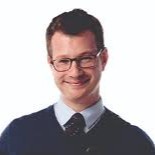Jonathan Staloff
Welcome to Collective Conversations, a series of discussions aimed at highlighting people and groups working to improve health through better health care systems.
In this post, you'll read about Family Medicine physician Dr. Jonathan Staloff and his new role at the Seattle Veteran's Affairs Medical Center as a Health Services Research and Development Fellow.
In 100-150 words or less, please describe your new role at the Seattle VA.
In my new role as a Fellow at the Seattle VA, I’ll be spending the next two years developing a health services research skillset by taking classes at the UW School of Public Health, working and being mentored through research projects I’m passionate about, and practicing as a primary care physician. At the VA, I’ll mostly work on research projects that study how primary care delivery system design can best support Veteran population health. I will also work on research outside the VA system through my continued involvement with the UW Value and Systems Science Lab (VSSL), where I’ll focus on policy relevant research related to population health.
What skills, experiences, or people/communities from UW helped prepare you to take on this new role?
Throughout my education and training, I’ve loved studying how US healthcare policy, particularly ongoing payment reforms and alternative payment models, impact population health and our primary care infrastructure. During residency, I was incredibly fortunate to receive amazing clinical training at the UW Family Medicine Residency program and am grateful to continue to grow as an Acting Instructor in the Department of Family Medicine. I’m also so grateful to have benefitted from truly outstanding mentorship at VSSL during residency. My mentors at VSSL invited me to participate in research projects that made me excited about the intersection of health policy and research, helped me gain an understanding of the skills I should further develop to grow as a future researcher, and taught me so much about US healthcare in general and payment reform specifically. I’m excited to continue these mentoring relationships during fellowship and take the lessons I’ve learned so far to focus my development as a health services researcher.
What excites you most about this role?
First and foremost, I’m excited about the time I’ll have these next few years to focus on my growth as a health services researcher in a purposeful way. Throughout my training thus far, the focus of my time and energy was on how to become the clinician I hoped to be, and any work in health systems or research was extracurricular. This was of course essential, and I’m so grateful for growth I’ve had as a clinician because of that dedicated focus. The idea that I’ll now get to spend
the next two years to focus on growing as a researcher is really thrilling. I look forward to developing skills in quantitative analysis, developing relevant and targeted research questions, and learning to walk a research project from start to finish. Never throughout my training have I had the time to purposefully invest in myself in this way, and I’m so grateful for it.
From your vantage point, what seems to be an area of uncertainty related to your work that will be important to monitor going forward?
Up until this point in my career, most of my experiences have focused on thinking about how our multi-payer civilian healthcare system can change the way we pay for care and move away from traditional fee-for-service toward a mechanism that better supports primary care, health equity, and population health. It’s a topic that I think is incredibly important and one that I continue to be passionate about. In my current position, I find myself doing research in a healthcare system that has fundamentally different circumstances from how I’m previously accustomed to thinking. VA is a single payer vertically integrated system, one that strongly invests in primary care, and follows a different payment structure from the civilian healthcare system. This change is really an extraordinary opportunity for me to focus on how a robust primary care infrastructure can deliver cost conscious, quality, equitable care, compared to how to we pay for a robust primary care infrastructure that supports population health. While this does create some uncertainty as to the directions in which my research will go, I think it’s a truly special opportunity for me to grow as a primary care researcher with perspective in both payment reform and delivery system innovation research.
Looking two years forward, what do you hope to have accomplished and for whom, through this new role?
Ultimately, I hope to produce actionable policy relevant research that proves useful in creating a more effective and equitable primary care infrastructure for Veterans, particularly those with complex chronic illnesses. For myself, I hope I’m able to develop more robust quantitative analysis, coding, and writing skills, and further develop my sense of where I might be able to make a meaningful contribution as a physician and health services researcher.




